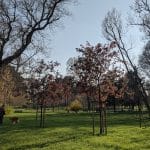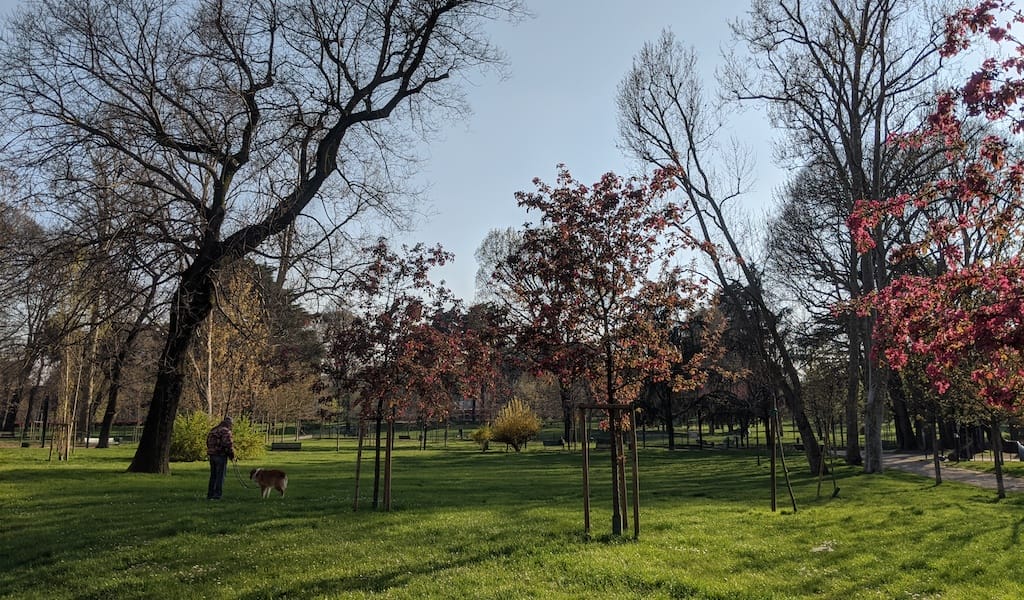Rua Antero de Quental is a short street that runs uphill from Avenida Almirante Reis – within whiffing distance of the famous Cervejaria Ramiro – to the pale yellow palace housing the Italian Embassy. Handsome 19th century buildings in various states of disrepair line both sides of the street. It’s a shortcut up to Campo Martires da Patria and over toward Avenida Liberdade so it gets a lot of thru traffic. A couple of haggard men stand at the bottom of the street waving people in toward parking spots up the street. At night, sometimes, African mestres leave flyers tucked under the windshield wipers of cars that offer remedies to all sorts of ailments. I collect these flyers.
Aside from the tasca of Senhor Ze, social and commercial activity on the street is focused on the minimercado of Daniel, officially called the Kwik Mart. Daniel’s shop occupies no more than 10 square meters of Portuguese soil but has a much greater commercial footprint in the neighborhood. In terms of merchandise, superglue, sewing kits, barbecue charcoal, every kind of potato chip, fresh vegetables and bags of frozen ones, a decent spice rack, a conservative selection of birth control, a rack of phone cards, canned goods, and Portuguese wines starting at €1.50/bottle are neatly crammed floor to ceiling. Daniel’s cheerful motto is “so that you don’t have to leave the street!”
When no one is around, Daniel watches Nepalese television or plays online chess on his desktop computer (from which you can print out documents for a small fee), which sits next to a Nespresso coffee maker (50 cents a cup). Mostly though, people are always around because Daniel is such a bright beam of positivity.
Ordinarily, I visit Daniel’s shop a couple of times every day and even more since the arrival of coronavirus. Daniel’s is the only hangout for garbagemen, construction workers and local roustabouts getting into the Sagres Minis in the mid-late afternoon. I suggested he expand into the recently shuttered Angolan taverna next door to accommodate the happy hour. Instead, Daniel put a couple of chairs out front and a tin can for cigarette butts, but most of his clients lean on cars and fling their butts into the cracks between the pale yellow patterned stones of the Calcada Portuguesa.
These days, there’s not so much action at Daniel’s so we have more time to talk when I go see him. He says he wants to keep busy but I am sure he really doesn’t want to be alone. The street needs him, but I think he needs us too. After I had knee surgery last year, he hoisted me onto his back and carried me into my apartment. He’s stronger than he looks. Other than visits to Daniel, my life has moved indoors, giving me time to reexamine my relationship with my neighbors.
Most of the buildings on the east side of the street have a large garden in back and in my building the garden is divided into four equal-sized squares bordered by short walls so that the lower four flats – two on the ground floor and two on the first floor – have their own “private” gardens. The flats on the ground floor, mine and that of my neighbor, Jean Michel, are flanked by high gangways where our neighbors pass to their gardens, behind ours.
Our upstairs neighbor, Paulo, hangs his wetsuit on the railing of their gangway after returning from surfing in the mornings but not so much this year, since his wife, Filipa, was fully pregnant with their third child. From the rail, where he used to hang the wetsuit, we socialize these days. He told me that when his youngest daughter, Pilar, was born he was surfing. When he came in from the water, he had 17 missed calls, he said. It seems that will not happen again this time. Paulo works for the Lisbon Municipality and he’s now charged with organizing homeless shelters, which he says are overwhelmed. He told me that homeless people who always preferred to live on the street are coming in. “They’re scared,” he said.
Pilar and her sister Mimi are forever squeezing through the bars and shimmying down the fat trunk of our yucca tree into our garden to play with my daughter but Paulo strictly forbids it these days. So now the girls chat from rail, just like we do.
Jean Michel next door is a teacher at the French Lycee and a widower with two adopted children. His backyard is the domain of his cat, Biscot, who roams free, and Jean Michel, who smokes, makes phone calls and tends to his plants with a great deal of success. The other day he peeked over the wall and said to me, “This is like war.”
Upstairs from Jean Michel is the flat of Senhora Luz, a grand woman in her 70s who lives alone. She dresses in stylish flowy clothes, and her hair is always done. Her kids and grandkids live in Mozambique but they visit her once a year and spend a lot of time on her gangway, otherwise she only emerges to smoke. In her garden is an avocado tree as big as our five-story building. A couple of times a year, she hands out avocados to everyone in the building. Senhora Luz is a psychotherapist, a career path that must have been difficult to pursue for a woman in her generation. I’ve often daydreamed about seeking her services just to learn more about her life.
The relationships in our building have a natural distance enforced by our garden walls. We don’t get together for potlucks or watch each other’s kids. Our condominium meetings, when we discuss the latest building upkeep project, are held in the stairwell. Keeping the peace and respecting each other’s privacy are the priority of our building. Though our relationship is punctuated by occasional warm surprises (today, Senhora Luz passed me a freshly cut strelica flower looking like the cocked head of a tropical bird) it is built upon respecting the distance. Our building was built for this. It makes me antsy.
We are a week into lockdown and I head to Daniel’s for some AAA batteries. He’s wearing a facemask now but I can see his eyes smiling.
“Hello, sir!” He greets me.
“Hello sir!” I counter. We call each other sir for fun.
I worry about the future of his shop. His business partner, Lilly, left for England a couple of months ago and is now stuck in Wales without work. Daniel says the shop is hard to run on his own – when he goes to the cash and carry he has to close the shop and his customers think he is closed for the day – and he has considered shutting it down permanently. Rua Antero de Quental has one other minimercado and just about every street around here has one or two, mostly operated by immigrants from Nepal or Bangladesh, who work long hours on very narrow margins. As essential as these shops may be to daily life, they’re not often considered to be much more than a convenience store. One may close and another may open without much notice. Though the government has announced an economic support package, Daniel said that he is not expecting that support to make it his way.
I asked him what gets him through the long days and he said, sweeping an arm across his merchandise, “If I can create value in people’s lives, then that is my reward, not money.”
He says he’ll stay open until his suppliers stop delivering (some already have). I’ll keep shopping at Daniel’s as long as he’s open. Without this daily ritual, I’m not sure what I’d do.
Published on April 01, 2020
Related stories
March 4, 2021
TbilisiIt has been 12 months since the novel coronavirus was first detected in Georgia. It was about the same time two CB colleagues, Celia from Lisbon and Chiara from Naples, arrived for a brief visit and joined us for what would be one of our last food walks of the year. Later, we went to…
April 3, 2020
NaplesEditor’s note: We don’t operate in Milan, but it’s the home of our managing editor, Emma Harper. So we asked her to share her experience living under lockdown in the epicenter of Italy’s outbreak. The first thing I noticed on lockdown in Milan, and the thing that has stuck with me the most, is the…
March 31, 2020
Mexico CityIn 2009, the A(H1N1) virus, known colloquially as the swine flu, hit Mexico hard. Only a few months before the outbreak began, I had moved from San Miguel de Allende to Mexico City trying to rescue a broken relationship. I had to take the most boring job in the world: a customer service agent at…
















































































